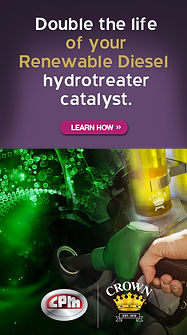Airlines skirting SAF requirements in EU, known as ‘tankering,’ could be real issue by 2035

The International Council on Clean Transportation published a working paper in late April on potential so-called “tankering” issues that may foreseeably arise from an EU sustainable aviation fuel (SAF) mandate under development, which would require an increasing share of SAF in jet fuel at European airports beginning in 2025.
“This raises concerns that airlines might uplift additional fossil jet fuel at non-EU airports in order to avoid purchasing the more expensive SAF blends,” the authors of the ICCT paper write. “This is known as tankering and is already a common practice where the price of fossil jet fuel varies across airports. Tankering saves airlines money, but increases systemwide fuel use and emissions and could reduce SAF sales under a mandate.”
The authors—Dan Rutherford, Sola Zheng, Brandon Graver and Nikita Pavlenko—estimate possible emissions and fuel-sales impacts of tankering on flights arriving at EU airports through 2035. In order to do this, they draw upon ICCT’s Global Aviation Carbon Assessment model.
Assessment results indicate that in 2025 tankering would likely be minimal but a decade later, under an escalating SAF mandate, the practice may be carried out on nearly 80 percent of international flights to and from EU airports.
“By that time, tankering could reduce SAF sales by 22 percent at EU airports and increase systemwide fuel use by 0.9 percent,” the authors write. “This assumes that adjoining countries do not adopt parallel SAF mandates. Carbon dioxide reductions attributable to an EU SAF mandate could fall by about one quarter in 2035 as a result of tankering.”

Flights originating from the U.K. could be responsible for half of tankered flights and excess fuel consumed, the paper suggests. “Eliminating tankering on U.K. flights to Europe would increase SAF sales at EU airports by almost 20 percent (see diagram).”
Ultimately, the paper concludes that in order to uphold the integrity of Europe’s SAF mandate, additional government regulations should be put in place.
“Mandating that airlines purchase SAF at EU airports, prohibiting the carriage of excess fuel, and encouraging neighboring nations to adopt equivalent mandates could help safeguard the integrity of an EU SAF mandate,” the authors suggest.




















-adjusted-to-spec.jpg)



